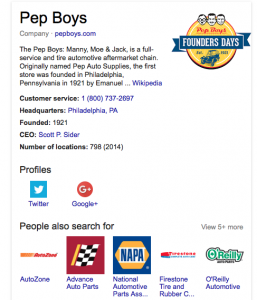— September 17, 2018

freeGraphicToday / Pixabay
Giving a sense of meaning is becoming more and more important to attract and engage talent. We all want our work to matter. One of the most powerful motivators is knowing that you are making a difference in the world. Of course you can work for a company that:
- has integrated ‘doing good’ in their business model,
- exists with the sole purpose of serving the community (government or NGO),
- has products which play a vital role in health (healthcare or pharmaceutical), or
- focuses on the development of society (financial institution, education, or art).
However, most of us work in organizations where there is no obvious correlation between the product and services the company provides and the impact it has on society. How would a fast food organization ‘do good’? Shake Shack is trying hard with the Better Burger revolution. Or a cement company? Lafarge is tying it to build better cities. How about your local accounting firm’s contribution to society? EY is aiming to build better workplaces.
So how can you help your team do good by making a difference in the world if you represent a tobacco company’s accounting department, a software company’s developer, or a delivery company’s logistics team? I guarantee you, every company can contribute to society – no matter what industry they work in.
Willingness to Do Good
The first step to align your team to a purpose that’s making a difference in the world is realization. The purpose is no doubt larger than the immediate contributions they make to the organization. But the realization is that not only will society and the organization benefit from it, but specifically the team and its individual members as well.
The second step is then of course to sit the team down and start a conversation on how they want go about making a difference in the world. What will the team collectively do to create a purpose that not only serves the company but also the world.
Defining the Purpose
In facilitating teams to come up with their purpose I follow this process:
First, I ask them to recall a moment when they were proud to be associated with the team and organization. After they’ve shared this I ask them why they would like to be a part of this team’s future. This establishes an emotional connection with the past and the future. I then focus on how each member thinks they add value to the company and what role the team plays in the overall company’s vision. Lastly, I facilitate a discussion challenging them to think beyond the company and conceive ways they as a team can impact the society.
An accounting team can come up with a purpose that aims at being a role model of transparency and hold exemplary integrity in reporting in their business environment. A logistics team can come up with trying to reduce the carbon footprint of their operations. A factory team can focus on supporting communities outside their manufacturing facility. A purchasing team can help develop local suppliers adhere to global standards. A credit card sales team can aim to educate people on being financially responsible. You get the idea.
In my view every team, irrespective of their skill, can make a connection between what they do and making a difference in the world. Maybe the larger purpose isn’t obvious at first. If you keep on peeling the ‘proverbial’ onion, answers will come up. Sure it may not mean a lot to people outside the team, but since they identified and articulated it themselves, it would hold importance to people within the team. It will also have a significant impact on how committed individuals will be to their teams and how engaged they are to deliver on that purpose.
Business & Finance Articles on Business 2 Community
(71)
Report Post









